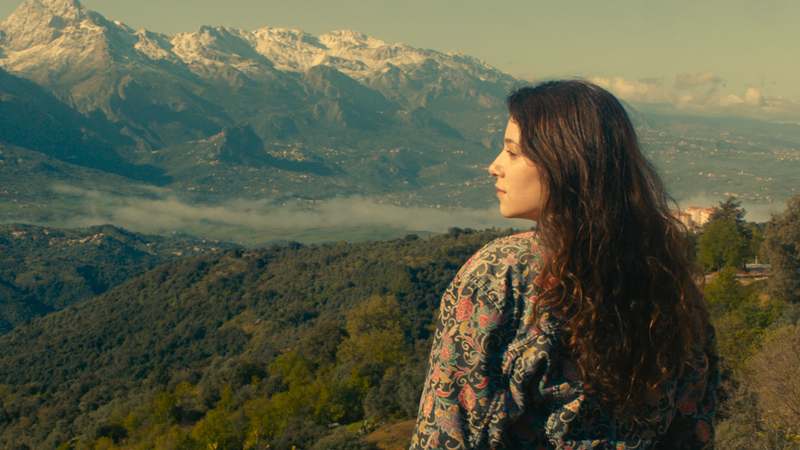
Kamir Aïnouz’s directorial debut Honey Cigar paints a heartfelt portrait of early womanhood, as 17-year old Selma navigates the expectations and realities of intimacy and her own femininity.
The film’s setup draws from various coming-of-age cliches — which are not a disservice to the film, and if anything, prime the audience for the nuances to come. Selma is the new girl at school, having only just moved to France (from Algeria). She’s eager to lose her virginity – but perhaps more importantly, eager to feel loved. Because, in her mind, it seems there is at first not much of a gap between sex and love.
However, as the film progresses it strips away those fairytale rhythms of romance, leading Selma through disappointments, pain, and finally growth.
Her character opens the film with a know-all confidence, well disguising the inexperience she’s set on changing. Julien, a boy from school, is the central romantic interest. He’s drenched in overconfidence; his first words to her being “Nice smile. Nice boobs.” Selma laughs. This overt sexuality is attractive to her at first, but later pressures her to keep her mouth shut about fears and insecurity, as she winds up trying to match his carefree attitudes. She gives up her romantic expectations of sex for a casual fling with him, and is confronted by the realisation that she really does care about sex.
Towards the midpoint, Selma asks her mother “what’s the point in a good education if the only thing that really matters is who you marry”. Tellingly, she’s met with no response, and the question remains: what should value look like for a woman? After Selma is raped by an older businessman, this definition of ‘sexual liberation’ transforms in her mind to be less about experience and openness, and instead, is rooted in a passion to reclaim her body and sexuality after it’s been assaulted.
Cinematography throughout the film is heavy on female gaze – which European films tend to do really well. A large majority of shots in Honey Cigar are close-ups of Selma, which ground us in her personal experience and perception. During sex scenes, the camera is careful not to sexualise her body but instead to capture her emotions. In the disturbing rape scene, the camera holds on her face, allowing the violence to instead fill the soundscape.
Family in Honey Cigar offers an interesting parallel to Selma’s love-quest. Discussions about the Algerian war and unrest of 1993 pepper the backdrop of Selma’s home-life, gradually becoming almost equal in drama. The final act takes place entirely in Algeria, without a focus on Selma’s romantic life. Instead, this may be seen as a redirection of the feminine self towards independence, beliefs and, politics. And perhaps, at the heart, this is what the film is most trying to say; that a woman’s learnt independence and self-validation is the true love she needs, despite not fitting fairytales.
Throughout the film, Selma reads a love story. The progression of this in-text parallels the film’s plot, as neither character ends with the greatest love of their life, but rather, with a greater sense of who they are on their own. These characters are equipped with a more astute sense of their femininity and self-worth that audiences hope will protect them in the future.
Maddison.
Honey Cigar
Sydney Film Festival
